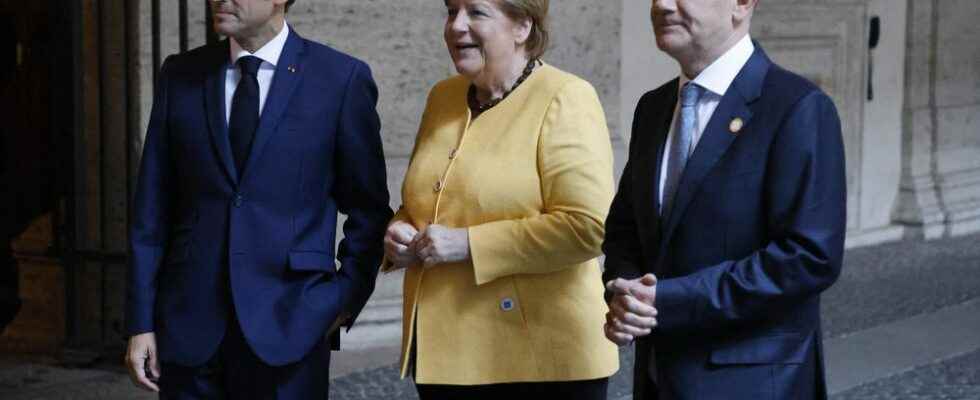Emmanuel Macron is no exception to tradition. Nearly two weeks after his re-election, he begins his new term with a first visit abroad to Berlin on Monday, after a visit to Strasbourg to celebrate Europe. Already, in December, the newly elected Chancellor Olaf Scholz had reserved for him his first trip outside the borders of his country.
However, if the collaboration between the two capitals is more than established, the start is still awaited for this new Franco-German engine of Europe, successor to a Macron-Merkel who has proven himself over the past five years. On the one hand, Paris had to wait for the designation of the new German leader, after weeks of negotiations. On the other hand, Berlin is awaiting the results of the June legislative elections to reinvigorate the Franco-German couple, the essential animator of the European project.
“As long as the French electoral cycle has not been completed, the Germans are not going to embark on all-out projects with Emmanuel Macron, underlines Paul Maurice, researcher at the study committee for Franco-German relations at Ifri ( French Institute of International Relations), especially since there is some concern for the election of deputies, with Marine Le Pen’s high score in the presidential election and an alliance of left-wing parties ahead of Renaissance in the polls of opinion.”
Emmanuel Macron, Angela Merkel and Olaf Scholz, October 10, 2021.
AFP/Ludovic MARIN
Fear of co-belligerence in Ukraine
On the side of Paris, we have long regretted Angela Merkel’s lack of European commitment. The only exception: the health and economic crisis caused by the Covid-19, when it went back on its credo of a refusal to pool the debt. The restrained profile of Olaf Scholz does not seem to plead for a change of gear, after 16 years of a certain wait-and-see attitude. “If he finds it difficult to commit, he is also pushed by his coalition, however nuance Paul Maurice. This can lead him on a European path, of which he is convinced.”
The delivery of heavy weapons to Ukraine is the latest illustration of this. Pushed by his partners, starting with the Greens, the Social Democrat was finally able to take his responsibilities, despite criticism from the pacifist wing of his party. “There is this great fear of German co-belligerence in Ukraine against the Russians, several decades after the Nazi invasion, explains Paul Maurice. I notice that Olaf Scholz, who was accused of blocking the sending of heavy weapons, took this decision after communications to this effect from France.”
In fact, the end of the French legislative elections will open a three-year window without major national elections on either side of the Rhine. “Macron will be liberated on the electoral level and will be able to further push his European project”, estimates Paul Maurice. This is all the more possible since the German government’s coalition contract included a pro-European tinge unparalleled during the Merkel years. A new chapter could therefore open.
